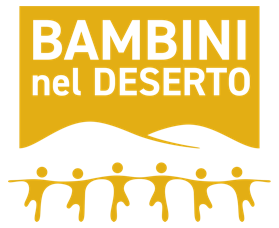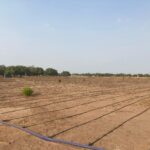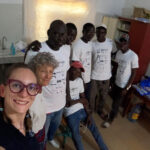Where has the people gone in the Sahel countries? Are they the children, young people, and adults who filled the stadium a couple of times after the coup at the end of July last year? Or are they the vigilance groups at the roundabouts of the capital? Or perhaps the thousands of citizens who demanded the unconditional departure of French troops first and then American troops in the square dubbed ‘Resistance’? There are people and people, as everywhere around the world, of course. Those who embody its vices and virtues and those who, let’s say, will never be part of it. For example, the children and adults who beg on the streets of the capital by the hundreds or who are ‘exported’ to neighboring countries to practice the profession of saving sinners’ souls. In fact, thanks to them, the faithful can practice the virtue of almsgiving and hope for divine mercy. In the ‘gray’ area between the people and the non-people, there are masses of farmers, livestock herders, and the immense crowd of young people who survive on informal work for their daily bread. Unless ‘people’ are only those who are on the ‘right’ side.
There is the people of traders, the big ones who go to Dubai or elsewhere, the middle ones who strive to emerge from the crisis, the small ones on the borders, and the smallest ones who sell water sachets from an improbable source in the Sahel, pure and mineral for all tastes. One remembers the people of politicians from the past, in a stalemate situation with the suspension of political party activities or because of compromises with the old presidential regime of the Renaissance. The people of state officials, teachers, employees in local NGOs, survivors of bilateral cooperations, and the endless list of those looking for work and collecting job applications for competitions that never come in time. One should add the people of religious entrepreneurs who organize the religious life of the people of believers, in turn divided between foreigners and natives. Then there is the people of migrants, refugees, displaced people expropriated of lands, houses, and the future they imagined differently. The people of the military is a story in itself, especially when considering ranks, affinities, knowledge, and current position in the country’s political administration. Women also form, in their own way, a special people with their rituals, expectations, prerogatives, and powers over the daily lives of their children and, less obvious, over their husbands.
The people is thus an idea born somewhere between the concept of a nation and that of a state. Or is it just an invention that only the choice to name it allows to exist? ‘In the name of the sovereign people’ sounds almost like an absolute proclamation with a divine flavor. Justice, law, and the constitution are based on the people, and so is the sovereignty that naturally belongs to them. It is the citizens recognized as such who seem to constitute the people based on historical, geographical, cultural, and political belonging to an accepted and recognized order. Then there is, finally, the people of sand, or rather the people for whom sand is a separate creature. Swept away by the wind and street cleaners, at the edges of lanes traveled by vehicles or alienated from the country’s strategic orientations, sold and occasionally held hostage by the new flags placed in the capital’s roundabouts. Those of the countries of the Sahel Alliance are proudly displayed alongside that of Russia. Perhaps the elusive people are hidden in the dust carried away by the wind.


